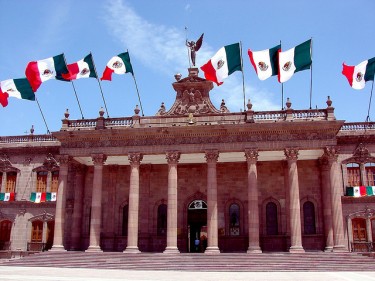In the Mexican state of Nuevo León, as of last week [es], anyone who uses social networks to post messages or images that cause “harm, dishonor, discredit to a person, or exposes him or her to contempt” can be incarcerated for up to three years.
Defamation is a felony in Nuevo Leon. The local Congress voted to amend the state's already-stringent policy [es] in what lawmakers described as an effort to fight cyber bullying, a legitimate and common problem. But given its broad scope, the law could easily be used to punish individuals who comment on others’ actions or criticize public figures online.
A defamation felon, according to the new law [es], is defined as someone who “uses any means to spread, reveal, transfer or transmit one or more images, recordings whether written or audiovisual,” to cause harm to another person or entity. The law also requires the operator of the website where the defamatory content is posted to reveal the identity of the person who committed the felon, a measure that could easily violate users’ rights to privacy online. If they don't comply, website operators may be subject to sanctions — this could leave sites like Facebook and Twitter in the difficult (but common) position of having to choose between respecting the rights of their users and obeying the law in a jurisdiction outside of their own.
On Twitter, the law has met sharp criticism [es]. Using the hashtag #MurióLaLibertadDeExpresiónEnNL [#FreedomofExpressionhasdiedinNL] many users have identified the reform as an effort to shield politicians and economic elites from accusations of fraud or other wrongdoing.
Free expression advocacy organization Article 19 wrote in a press release that with this reform, the state of Nuevo León
…incumple con las obligaciones internacionales que tiene el Estado Mexicano en su conjunto en materia de libertad de expresión […] Pese a las recomendaciones internacionales de despenalizar los llamados delitos contra el honor porque coartan los derechos de libertad de expresión opinión e información…
…fails to comply with the international duties Mexico has to protect freedom of speech […] [The law goes] against international recommendations to decriminalize so-called offenses against honor as crimes because this restricts freedom of expressing, opinion, and information…
The organization has called on [es] Governor Rodrigo Medina to use his veto power and require that the local Congress review the amendment with these concerns in mind.





1 comment